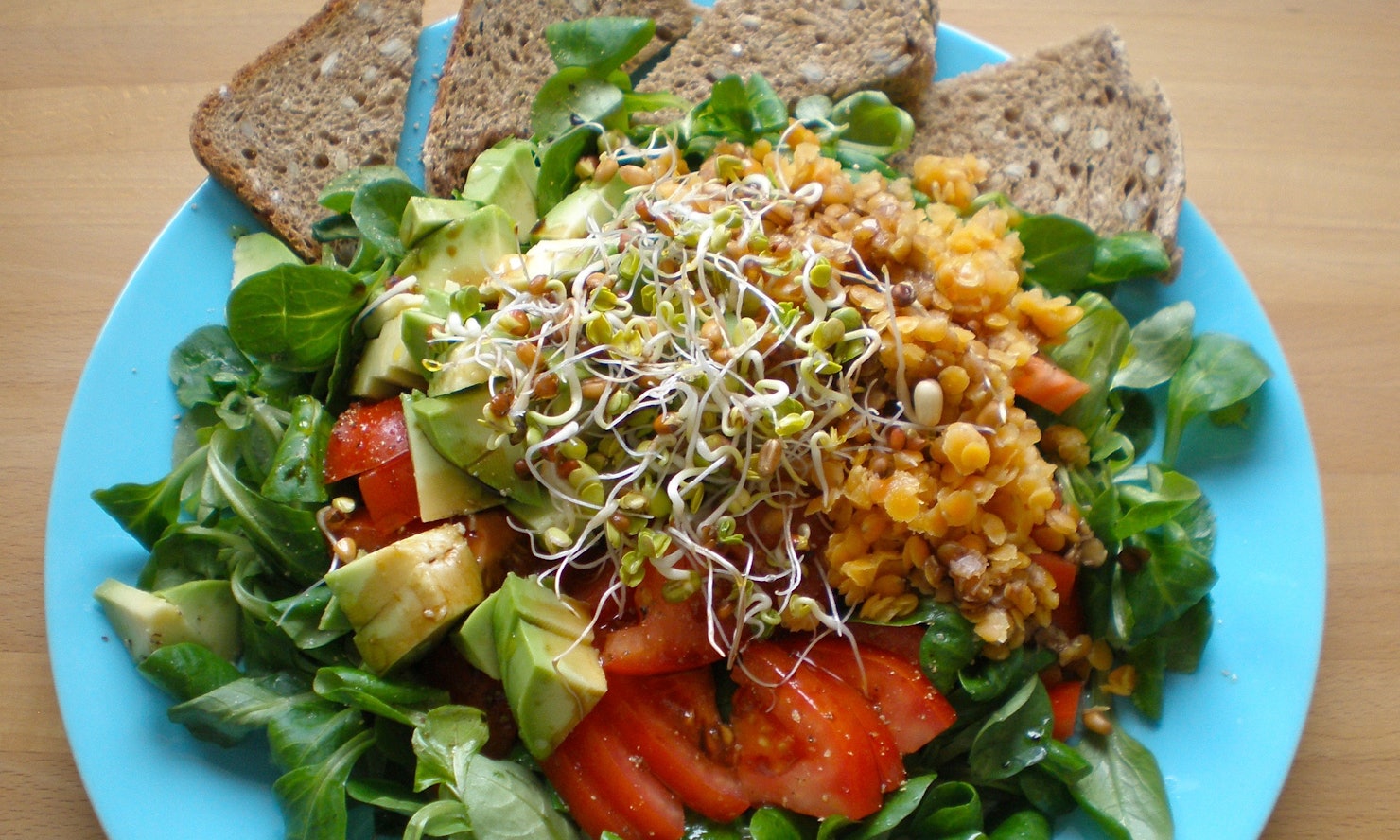
Eating healthy can come with a lot of positive health effects — increased energy, better sleep, improved mood. But loading up on veggies, whole grains, and healthy plant-based proteins can also come with a slightly dark side: bloating. Nothing is worse than feeling proud of yourself for eating a totally healthy meal full of protein and fiber, only to find yourself with an uncomfortably inflated tummy.
"The foods you eat can cause what may be referred to as 'bloating', but how you eat them can also contribute to abdominal discomfort," says Marci Clow, MS, RDN. "Any food eaten in too large of a quantity can trigger bloating, which is easily solved by consuming smaller portions. Eating too quickly can also add to the risk of bloating after a meal, as it may take longer for some people’s brains to signal the feeling of fullness."
Trying to avoid fatty and salty foods can definitely help banish bloating, but not all stomach issues come from eating just junk food. Many unsuspecting foods can also contribute to bloating. Though you shouldn't need to fully cut out a food group, if you're having some issues with bloating, try cutting down on the following seven foods that have been known to cause gas abdominal discomfort.
1. Legumes
Though they're definitely good for you, legumes such as beans and lentils are known to be major culprits of gas and bloating.
"They contain oligosaccharides, which are a difficult-to-digest carbohydrate," says Clow.
If you still want the health benefits of legumes, but are worried about your stomach, try soaking them before cooking to reduce bloating.
2. Cruciferous Vegetables
Vegetables in the cruciferous family — which include broccoli, kale, cabbage, and cauliflower— contain raffinose, a sugar which remains largely undigested until it reaches the large intestine, where it’s fermented by methane-producing bacteria. Eating yogurt or taking a probiotic can boost the good bacteria in your colon, helping to reduce bloating from these fiber-filled veggies.
3. Dairy
"Dairy products can be a problem for those who have trouble digesting lactose," says Clow."If you are lactose intolerant, your body doesn’t have the necessary enzymes to break down these sugars, which triggers bloating."
Though you may not be completely allergic, about 60 percent of adults have problems digesting milk, which could cause stomach discomfort and bloating.
4. Whole Grains
Since foods high in fiber can often cause bloating, even heart-healthy whole grains can be problematic.
"Whole grains are an important part of a healthy diet, but can sometimes cause bloating if your body is not used to their fiber content," says Clow.
Though fiber does help with digestion, studies have found that reducing your intake if you happen to consume a lot can actually help with stomach issues and reduce gastrointestinal problems.
5. Salty Frozen Foods
"Frozen or processed foods that are loaded with sodium can trigger water retention," says Clow.
Eating too much salt causes your body to hold on to water so it doesn't become dehydrated. Since many frozen foods have salt added to them to enhance flavor at a low cost, they are best avoided. If you happen to consume a lot of sodium, drinking extra water can help keep bloating at bay.
6. Sweeteners
Artificial sweeteners have been known to upset the stomach, but they can also cause bloating. Fructose is also difficult for many people to digest, and can cause gastrointestinal issues.
"Sugar alcohols such as sorbitol are known for causing bloating as they can’t be digested," says Clow.
7. Soda
Carbonated beverages can cause gas build-up in your stomach and increase bloating. If you want to enjoy your seltzer water without feeling like you'll puff up, Clow suggests avoiding the use of straws, which some say increases air intake, leading to gas and bloating.
Original article and pictures take cdn.bustle.com site
Комментариев нет:
Отправить комментарий